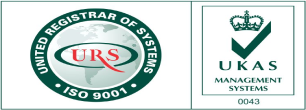
Are Hidden Process Flaws Putting Your Business at Risk? Discover How PLM Solutions Can Prevent Costly Mistakes!
In the fast-paced world of product development, even the smallest oversight can lead to significant setbacks. From missed deadlines to costly rework, hidden process flaws can wreak havoc on your business, often without you even realizing it. But what if there was a way to not only identify these risks before they escalate but also streamline your operations to prevent them from happening in the first place?
This is where a robust Product Lifecycle Management (PLM) Solution comes into play. In this blog, we’ll explore how hidden process flaws can threaten your business and how a PLM solution can be your safeguard against these potential pitfalls.
The Invisible Threat: Hidden Process Flaws
Every business has processes that drive product development, from initial concept through to manufacturing and beyond. However, these processes often involve multiple teams, complex workflows, and numerous touchpoints. With so many moving parts, it’s easy for inefficiencies and errors to slip through the cracks.
Some common hidden flaws include:
Miscommunication between departments: When teams aren’t aligned, crucial information can be lost or misunderstood, leading to errors in product design or production.
Inconsistent data management: Without a centralized system, data can become fragmented, outdated, or duplicated, causing confusion and delays.
Manual processes prone to error: Reliance on spreadsheets and manual tracking increases the likelihood of mistakes, which can be costly to correct later.
These issues may start small, but their impact can snowball, affecting product quality, customer satisfaction, and ultimately, your bottom line.
How a PLM Solution Can Save the Day
A PLM solution is designed to manage the entire lifecycle of a product from inception to retirement, providing a single source of truth for all product-related information. Here’s how it can help you prevent costly mistakes:
1. Streamlined Communication and Collaboration
A PLM solution centralizes all product data and makes it accessible to all relevant teams. This ensures that everyone is working with the same information, reducing the risk of miscommunication and mistakes. Whether it’s engineering, manufacturing, or marketing, every department stays aligned with the latest updates.
2. Automated Workflows and Process Standardization
By automating workflows and standardizing processes, a PLM solution minimizes the chances of human error. Automated alerts and approvals ensure that nothing falls through the cracks, and predefined workflows guide your teams through each step, maintaining consistency and quality.
3. Improved Data Management and Traceability
With a PLM solution, all product data is stored in a centralized, easily accessible system. This not only makes it easier to find and use the correct information but also improves traceability. In the event of an issue, you can quickly trace back through the product’s history to identify the root cause, saving time and reducing the cost of rectifying mistakes.
4. Enhanced Compliance and Risk Management
Regulatory compliance is critical in many industries, and a PLM solution helps ensure that your products meet all necessary standards. It provides tools for managing documentation, tracking changes, and maintaining audit trails, helping you avoid costly compliance issues.
Real-World Benefits: Success Stories with PLM
Companies across various industries have leveraged PLM solutions to overcome hidden process flaws and drive success. For example:
Automotive: A leading car manufacturer used a PLM solution to streamline their design-to-production process, reducing errors and cutting time to market by 25%.
Consumer Electronics: A tech company implemented PLM to manage their complex supply chain, resulting in a 30% reduction in product recalls due to improved quality control.
Conclusion: Don’t Let Hidden Flaws Derail Your Success
In today’s competitive market, you can’t afford to let hidden process flaws undermine your business. A comprehensive PLM solution not only helps you identify and eliminate these risks but also enhances overall efficiency, quality, and speed to market.


